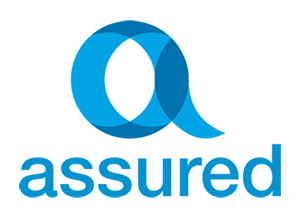Should you refinance your existing home loan or stick to the one you already have? It can be challenging to decide which the right option might be, especially with so many lenders advertising such competitive interest rates.
However, just because another bank or lender offers a lower interest rate doesn’t necessarily mean you’ll end up saving money by refinancing your mortgage to a new lender. The key to determining whether or not you should refinance your home loan is to weigh up the pros and cons and understand all the costs involved.
Here are some things to think about before making a decision to refinance your mortgage.
Interest rates
Obviously, the interest rate you pay on your home loan will play a role in determining whether you should refinance or not. If your current lender’s interest rate is no longer competitive, you could potentially switch to a different lender and save thousands of dollars on interest charges.
Besides, paying less interest on your outstanding mortgage balance each month could also mean reducing your monthly repayments. If your current lender isn’t willing to negotiate for lower interest rates, it might be time to refinance over to a lender with more competitive rates.
Fees and charges
Don’t make a decision to refinance based solely on the advertised interest rates you see. Always take some time to check what other fees and charges might apply to the refinancing process.
Your existing bank may have discharge fees and charges to pay when you pay off your current home loan. If you’re in a fixed rate home loan, you could also incur early repayment fees to break out of your fixed term before the expiry date. Depending on the amount remaining on your fixed home loan term and the interest rate you’re paying, the fees could be quite expensive. Your current lender can provide details of these fees for you.
Likewise, the new lender you’re considering may also have fees and charges to pay, including application fees, valuation fees, mortgage documentation fees and settlement fees. There may also be recurring ongoing fees that could increase your monthly loan repayment.
Always be sure you understand exactly what fees may apply to your home loan and how they could affect your personal situation before making a decision.
Loan types
Sometimes the home loans with the cheapest advertised interest rates may also have the least flexibility. For example, a fixed rate home loan allows you to lock in your interest rate over the fixed term, but may limit the amount of additional payments you can make and might not allow you to redraw extra payment amounts if you need them in future.
Likewise, some loans may allow you to link a 100% offset account to your home loan that offers the potential to reduce the amount of interest you pay on your mortgage. There are also basic ‘no-frills’ loans available that may offer lower interest rates, but also limit the number of features you can access.
Speak to an Assured Home Loans consultant and ask about how the different home loan types could affect your financial goals.
Know why you want to refinance
Before making a decision to refinance your home loan, be sure you know your reasons for wanting to switch and what goals you hope to achieve. Every person is unique, so your reasons for wanting to refinance will be individual to your situation.
You might want to:
- Pay less interest and reduce monthly repayments
- Pay off your home loan faster and reduce debt
- Unlock available equity to complete renovations or add a new extension on your home
- Consolidate other debts into one convenient monthly payment to streamline your finances
- Access equity to put towards an investment property.
No matter what your reasons are for wanting to refinance, be clear about what you hope to achieve by making the switch. You’ll find it easier to make a decision about what loan type will suit your needs.
Calculate your breakeven time
One of the more logical ways to decide whether you should refinance your home loan is to calculate how long it will take you to breakeven on the costs associated with the refinance process to determine if refinancing will be financially beneficial. Once you have broken even on your costs, everything after that point is to your advantage.
There are plenty of good breakeven calculators available online. However, the easiest way to work out the estimated time it will take you is to talk with your home loan consultant.
An Assured mortgage broker can explain all the fees and charges associated with refinancing your home loan, as well as discussing your new monthly repayments and any other options that could help you achieve your financial goals.
This article provides general information which is current as at the time of production. The information contained in this communication does not constitute advice and should not be relied upon as such as it does not take into account your personal circumstances or needs. Professional advice should be sought prior to any action being taken in reliance on any of the information.





